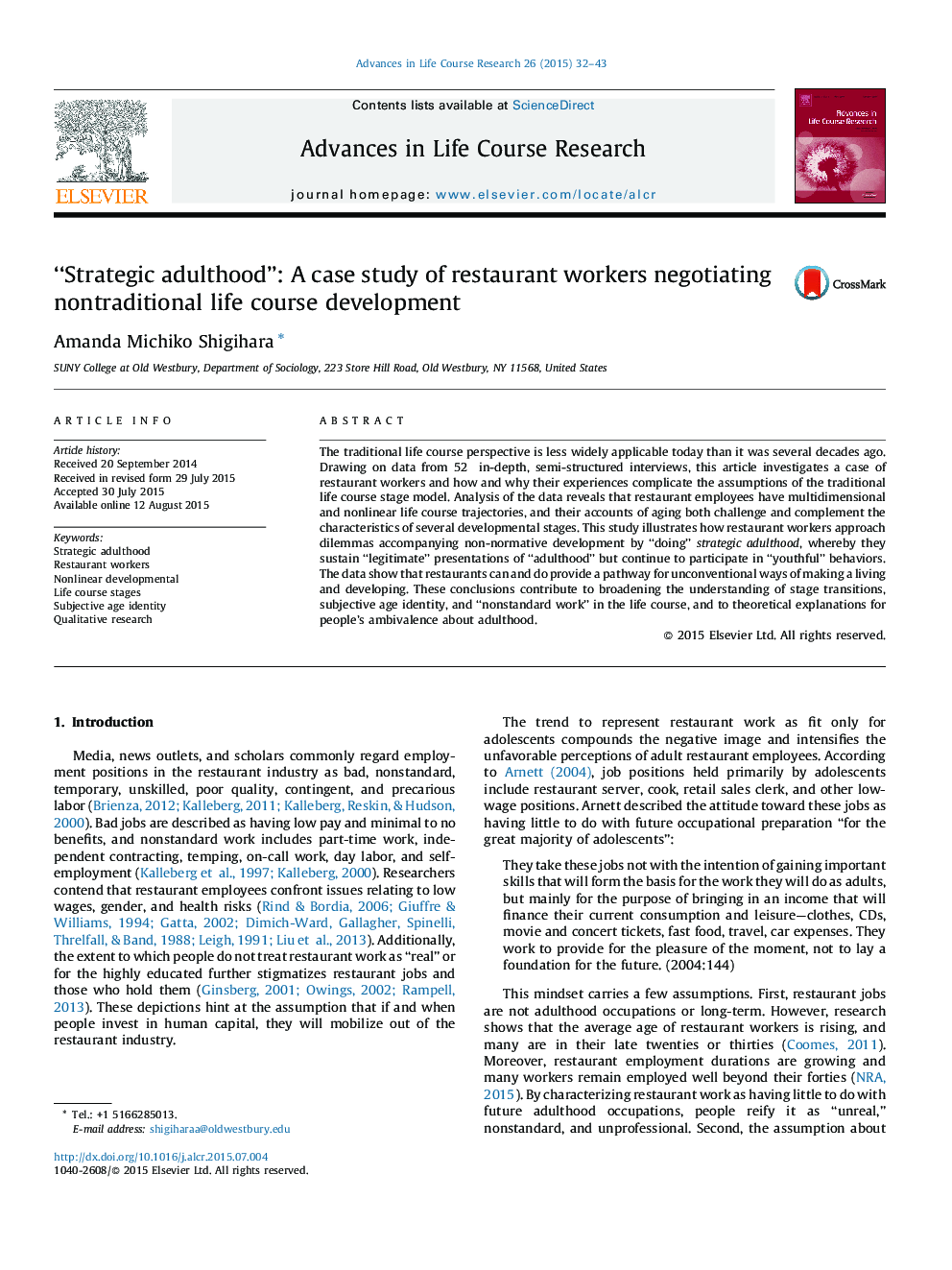| Article ID | Journal | Published Year | Pages | File Type |
|---|---|---|---|---|
| 6784877 | Advances in Life Course Research | 2015 | 12 Pages |
Abstract
The traditional life course perspective is less widely applicable today than it was several decades ago. Drawing on data from 52 in-depth, semi-structured interviews, this article investigates a case of restaurant workers and how and why their experiences complicate the assumptions of the traditional life course stage model. Analysis of the data reveals that restaurant employees have multidimensional and nonlinear life course trajectories, and their accounts of aging both challenge and complement the characteristics of several developmental stages. This study illustrates how restaurant workers approach dilemmas accompanying non-normative development by “doing” strategic adulthood, whereby they sustain “legitimate” presentations of “adulthood” but continue to participate in “youthful” behaviors. The data show that restaurants can and do provide a pathway for unconventional ways of making a living and developing. These conclusions contribute to broadening the understanding of stage transitions, subjective age identity, and “nonstandard work” in the life course, and to theoretical explanations for people's ambivalence about adulthood.
Related Topics
Physical Sciences and Engineering
Mathematics
Statistics and Probability
Authors
Amanda Michiko Shigihara,
